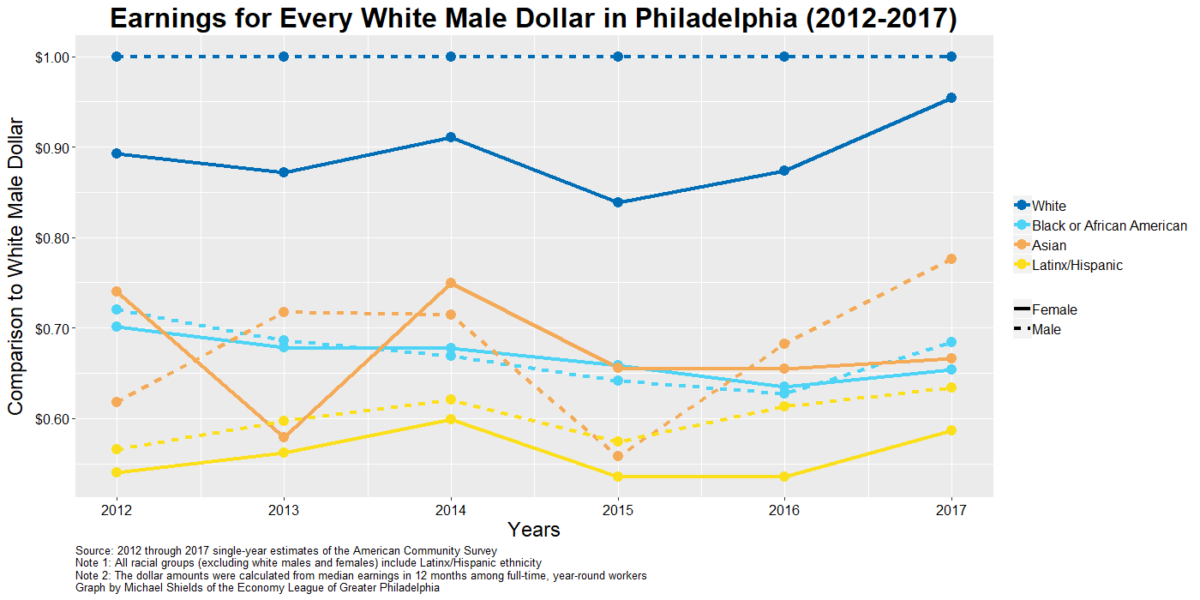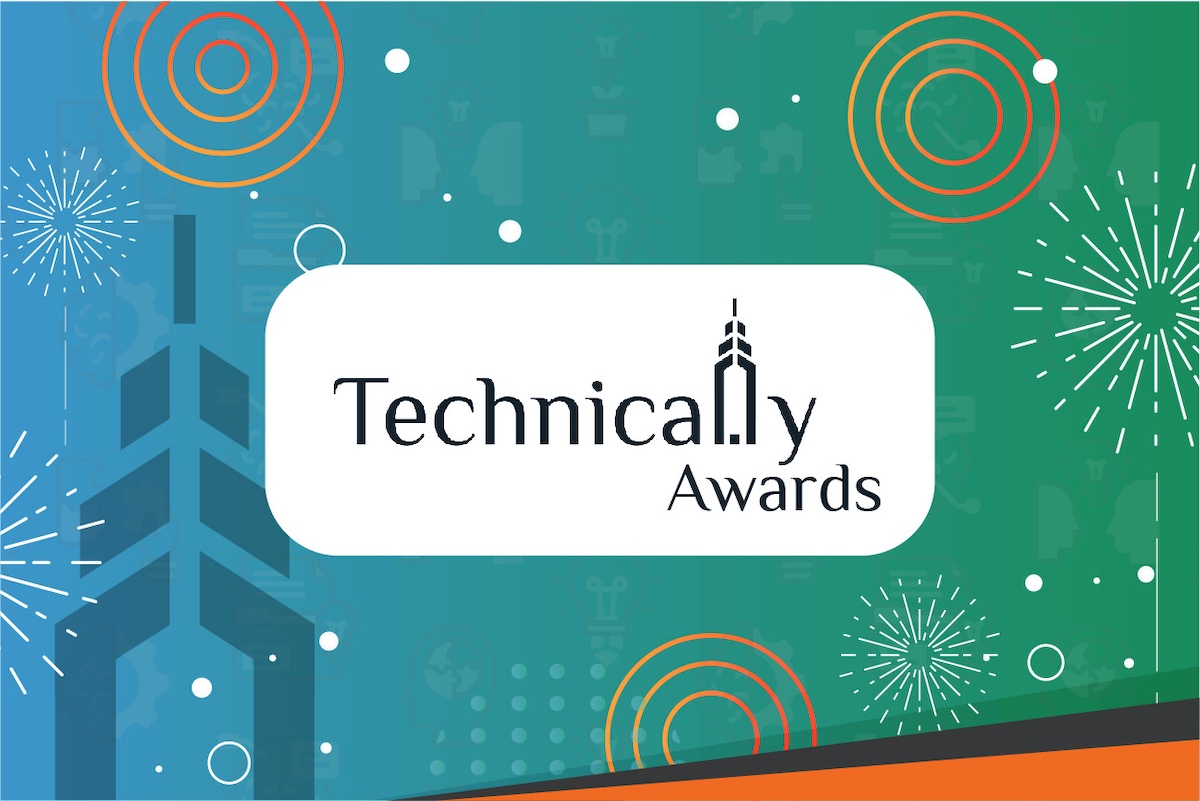Despite being a majority-minority city, Philadelphia still struggles with diversity in the workforce. In the tech industry, for instance, 71% of employees are male and 70.4% are white, according to the Census Bureau.
And in what’s probably no shock to anyone, given the national wage gap when considering gender and race, women of color in Philadelphia aren’t paid as much as men, a recent policy brief from the Economy League of Greater Philadelphia found:
- Black/African American women made only $0.65 for every white male dollar.
- Latinx/Hispanic women made even less, at $0.59.
- Asian women made $0.67.
But the nonprofit think tank’s report also showed that as a whole, Philadelphia is actually slightly better at paying most people of color and white women than other major Mid-Atlantic cities such as New York, D.C. and Baltimore.
White women in Philly made more on the dollar than all other major cities in this area and the national average by 5 to 17 cents. Black/African American women and Latinx/Hispanic women fared better than the U.S. average, while Latinx/Hispanic men matched it. Black/African American men fell short of the national average but made the most compared to nearby cities.
The exception is Asian men and women, who made less than almost every other city; see the chart below for full stats. The data was compiled via five-year estimates from the 2017 American Community Survey.

So, is there reason for hope? Is Philly doing something particularly well to make these (very relatively) better wage outcomes happen?
Well, it might just be that “we have fewer super-rich people” to skew the data, Economy League Executive Director Jeff Hornstein said.
But also, the City of Philadelphia is keeping policy moving in a productive direction with recent initiatives such as Fueling Philadelphia’s Talent Engine and the Tech Industry Partnership, which aim to increase job skills and diversity. It might take a few years to see the outcomes of those programs, but they can be considered a sign to I-95 neighbors that Philly takes shrinking the wage gap seriously, he said.

The report is part of the Economy League’s Policy Hub series, where it compiles data about local issues and policies. Hornstein said the project is a return to the 110-year-old organization’s original intent.
“The goal of the Economy League from the beginning was to attempt to professionalize municipal government,” Hornstein said. Now, he hopes it can serve as a kind of local version of the Congressional Budget Office, with a legislative analysis component in addition to the digital data hub.
Project Manager Michael Shields said that this report came after attending and listening to audio from the city’s weekly 2019-2020 budget meetings from March through May. (Did you know? A true warrior for Philadelphia is defined as someone who willingly hangs out at budget meetings.) During this time, Shields said he kept hearing about various departments and agencies discussing inclusion of underrepresented groups in the workforce.
“One of the issues is, yes, it’s great to have underrepresented persons in these offices, but they still face a slew of barriers even when they have full-time work,” Shields said.
In regard to how to fix the wage gap issue, Shields said he was not hoping for any specific legislation to come from the policy brief — rather, it’s now up to the city to decide how to move forward.
“It’s really going to depend on what the future of development and business attraction [is] and what’s going to happen in the city,” Shields said, “and if we, as Philadelphians, recognize that this is going to be an issue that’s going to arrive and we sort of act preemptively rather than reacting.”
Hornstein said that he hopes Policy Hub can offer all kinds of aggregated data in one place. Its latest newsletter, for instance, analyzed how many millennials in Philly are buying homes.
“We’re trying to add a little bit of perspective to this and to pull together people to have these conversations and to do some deep dives they wouldn’t ordinarily get into,” he said.







